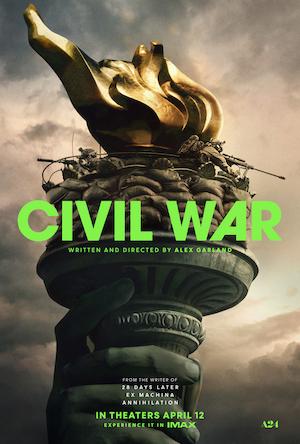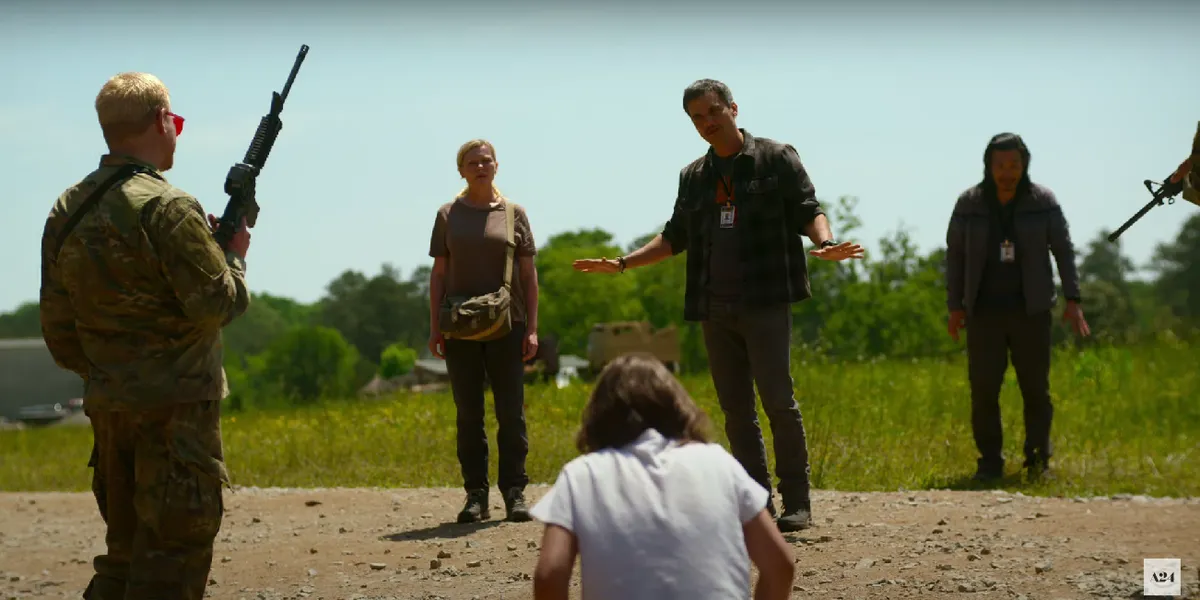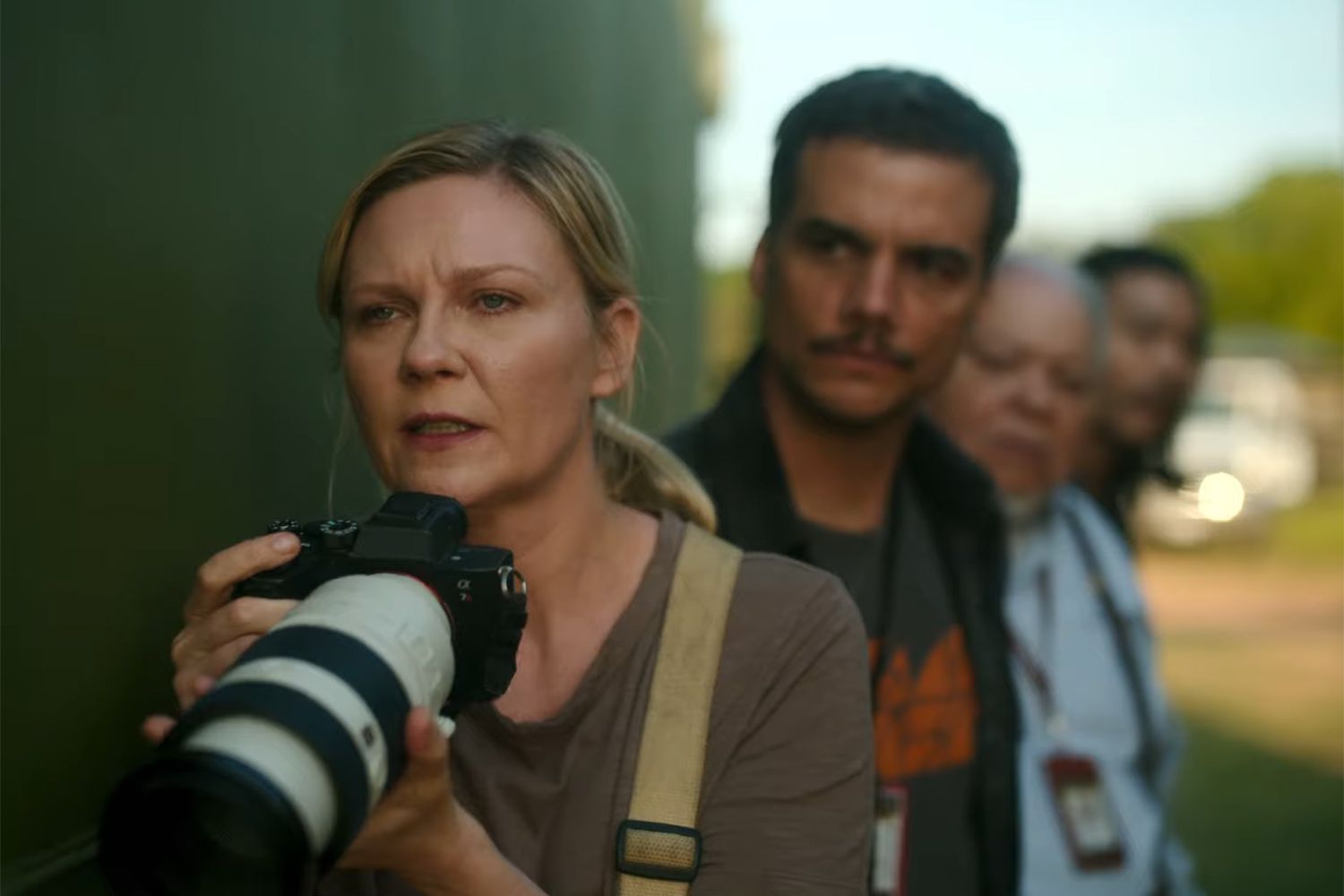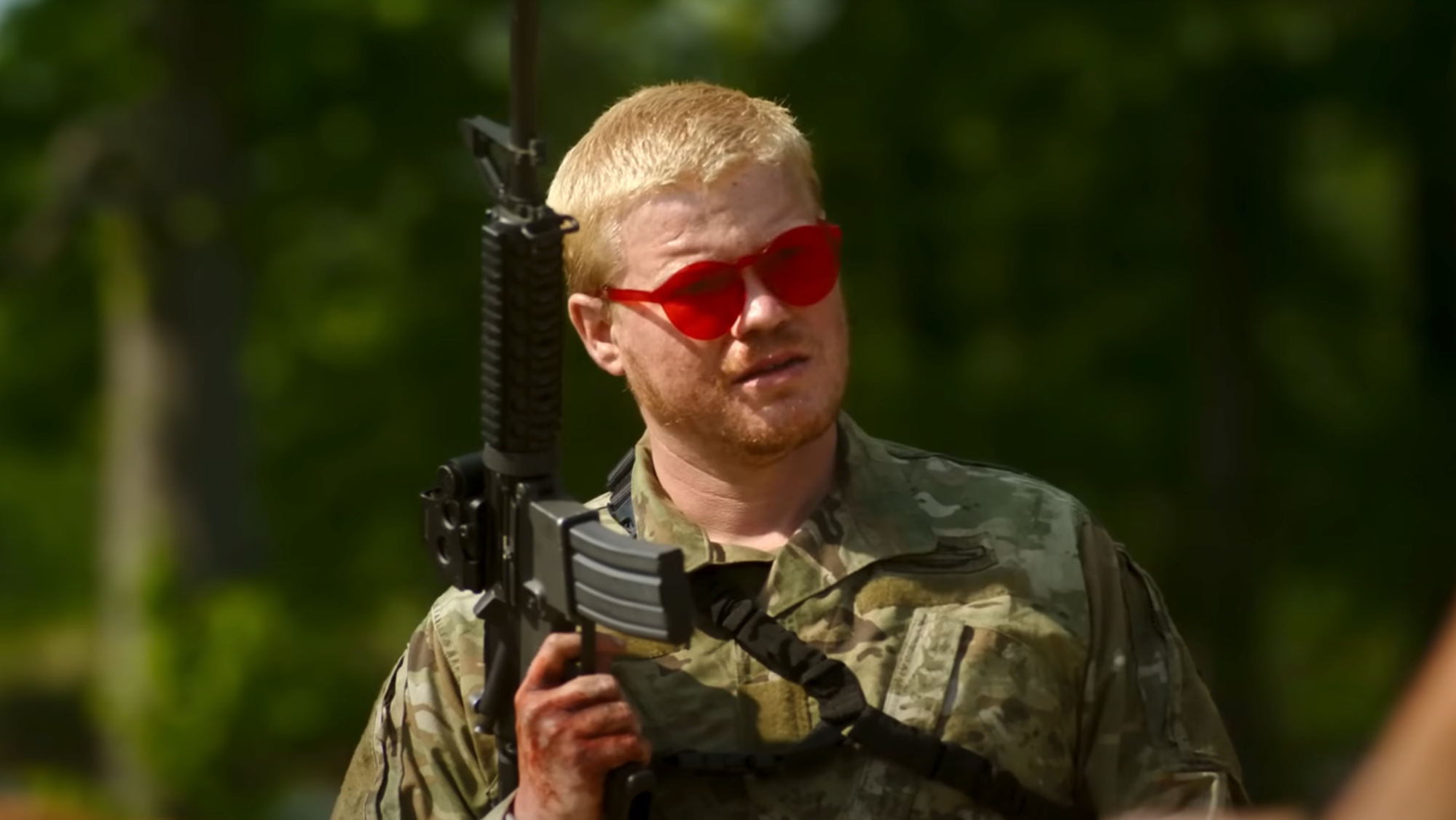
[Rating: Rock Fist Way Up]

Alex Garland, the brilliant auteur who brought us Ex Machina, Men, and Annihilation decided to hang up his clapper board after the release of his latest feature Civil War. The war drama stars Kirsten Dunst, Wagner Moura, Cailee Spaeny, and Stephen McKinley Henderson, and offers a dystopian finale to our current polarized political environment.
Lee (Dunst), Joel (Moura), and Sammy (Henderson) document the atrocities of war without interfering because of their firm commitment to a bigger obligation – journalism as a sacred calling to educate the public so they can make informed decisions. There’s one story left to cover in this war – an interview with the President (a barely used Nick Offerman), before the Western Forces of Texas and California forcibly remove him from the White House during his third term in office.
Driving to D.C with talented, but green, photographer Jessie (Spaeny), they see the consequences of their work ignored, while they carry the trauma of the terrifying positions they put themselves. It feels increasingly meaningless when Main Street would rather ignore the situation as the violence escalates.

The cast is outstanding – in delivery, casting, and chemistry. Dunst is an excellent actress, spending a good part of her career charming the camera with giggling, dimpled blondness (I envisioned her head tilt in Eternal Sunshine of the Spotless Mind as I wrote that). She is drastically away from type here, her dimples barely make an appearance. Emotionally exhausted and numb, Lee moves with weary, heavy determination, using her camera to both document and degrade.
Moura’s writer Joel tries to float through with easygoing Clark Gable charm, but is one failure away from nihilism. Henderson’s Sammy provides a perspective of caution, as well as comedic relief. Spaeny is playing 23, but looks 17 – and she leans into the naiveté, offering up her humanity layer by layer for the perfect shot.

It’s an ensemble piece in the truest sense, the chemistry of the four is well-balanced, intimate, and trusting. They are the safest space in this chaos, and the actors give each other as much room as the characters themselves.
Minor characters deliver as well, particularly Nelson Lee and Evan Lai as fellow journalists, whose need to expel the adrenaline leads them to a terrifying Jesse Plemons (his character isn’t even named on IMDb). With blood on his hands and soaked up to his knees, there’s no humanity left.

Civil War makes impressive use of audio. At times, it’s similar to being under water, and then the overstimulating audial chaos returns. The soundtrack runs the gamut from Suicide to Sturgill, creating a disorienting, but true, emotional experience. When the team relaxes, resting in safe spaces, the music is a drone of anxiety and dread. In times of survival, rest can be misleading – safety is just waiting for violence. The relief of survival is a flood of adrenaline and relief, and the music becomes celebratory and dancing. It feels disorienting and inappropriate to feel so much joy after carnage – but the soundtrack lends to the emotional authenticity of the movie.
The movie is so well crafted and, on iMax, absolutely immersive. The audio, the camera work, the interspersed photographic stills, viscerally expose the audience to the context around images we see from war torn countries – the chaos, the danger, the sacrifice to get those shots is largely undocumented.
Garland is an intentional writer – he doesn’t waste words or moment, packing each one with meaning and tone, and even the absence of dialogue is a deliberate negative space. Coming in under two hours, the movie is dense – each moment is built – with writing, with audio, with visuals – to move forward to a point.
The ethical stance of the bigger mission of the journalists is mirrored in the soldiers, which creates a reluctant understanding between the two groups, even while their execution (horrible pun and it stands) is different. When cameras and guns are shooting, people can become less and less connected to their empathy and humanity in pursuit of higher ideals – whether it is freedom or journalism or both. The cost of protecting those ideals can be incredibly high.
While Garland uses the tools of the movie to craft a relentless experience, he’s not here to make a political point. The writing takes an almost cheeky approach by muddling the politics – the President has refused to vacate and forced a third term (not a second) and political opposites California and Texas are united. In Civil War, it doesn’t matter how we got there or whose party did what. It matters that we did.
The movie asks the question, “What type of American are you?” It’s a disconcerting question to ask our fellow citizens. The answer, in Civil War, is “a human one.”




Comments on this entry are closed.